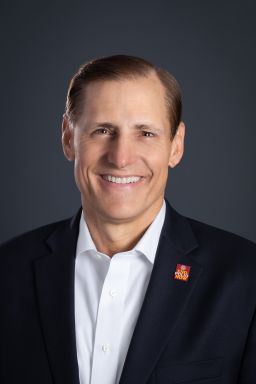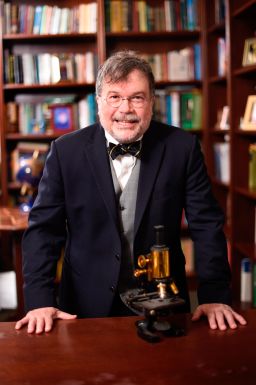Editor’s Note: John Hewko is the general secretary and CEO of Rotary International. Rotary International is a founding partner of the Global Polio Eradication Initiative. Peter J. Hotez, M.D., Ph.D., is co-director of the Center for Vaccine Development at Texas Children’s Hospital and professor and dean of the National School of Tropical Medicine at the Baylor College of Medicine. He is the author of “Vaccines Did Not Cause Rachel’s Autism” (Johns Hopkins University Press). The opinions expressed in this commentary are those of the authors; view more opinion articles on CNN.
The world is desperate for a vaccine against coronavirus. If and when it is discovered, will the voices of the anti-vaccine movement tell their adherents to turn it down?
If you asked this question of parents in the US in the 1950s, the response would likely be unequivocal.


This is because of the fear that gripped a nation, fear caused by the lethal poliovirus. When the US polio epidemic was at its highest, the country reported more than 21,000 cases of paralysis, according to the US Centers for Disease Control and Prevention, and more than 3,000 lives were lost.
Whereas today children — though in rare cases vulnerable to a little-known and frightening inflammatory disease – seem to be mainly transmitters of coronavirus, in 1952 they were the primary victims of polio.
Our history books paint a bleak picture of life during the polio epidemic: Deserted playgrounds, empty swimming pools, restricted travel and imposed quarantines.
Movie theaters were closed to avoid spreading the disease. Children were kept alive in hospitals by an earlier version of respirators called “iron lungs,” which allowed them to breathe when the virus had paralyzed their chest muscles.
The parallels with the coronavirus are obvious, and not only in the societal impact of an infectious disease before a vaccine was discovered. Polio was and still is another silent killer, primarily spread from person to person. Like Covid-19, it could display no visible symptoms in many infected people, flu-like symptoms in others and more serious, disabling or sometimes fatal effects in others. In the late 1980s, polio was endemic in 125 countries, according to the World Health Organization, and was infecting about 350,000 children a year — nearly 1,000 children every day.
But the public reaction to these two deadly diseases diverges in significant ways. When Jonas Salk developed a successful vaccine against polio in 1955, it was celebrated emphatically.
Panic and skepticism over the vaccine existed but were relatively muted. However, a recent AP/NORC poll found that if a successful Covid-19 vaccine is discovered, only 49% of Americans say they would get it, while the rest of the population is either opposed or uncertain.
How have we reached this point, where even during an extraordinary international public health crisis, there are still those who oppose vaccination, despite its track record in saving millions of lives?
Think of smallpox, far more lethal than coronavirus, which killed an estimated 300 million people, according to experts, before it was eradicated in 1979 thanks to a vaccine.
Or polio, which has been reduced by over 99% globally, according to the WHO.
Thanks to the Salk vaccine and Albert Bruce Sabin’s oral polio vaccine, and the work of the Global Polio Eradication Initiative, of which Rotary International was a founding partner, more than 18 million people have been saved from lifelong paralysis, and 1.5 million deaths have been prevented, according to the CDC and WHO. No one has suffered from the disease in the US since 1979.
Today, vaccines currently prevent up to 3 million deaths per year, according to WHO.
In the US, before those vaccines are licensed, a rigorous vaccine safety system ensures that they are safe and effective, involving multiple rounds of testing and clinical trials. Backed by the Food and Drug Administration and the CDC, this system upholds, in the words of Dr. Anthony Fauci, director of the National Institute of Allergy and Infectious Diseases, the safety and “scientific integrity” of any new vaccine. Even with the accelerated timelines attempted in the development of a coronavirus vaccine, safety is still prioritized by what doctors describe as many steps being executed in parallel compared to the traditional linear, years-long model of vaccine development.
Yet, in the face of extensive regulatory measures and an abundance of evidence proving the safety and efficacy of vaccines, even before coronavirus struck, vaccine-preventable diseases, including measles and flu viruses, were already resurging in the US.
These resurgences have materialized in part because of falling vaccination rates. A Health Testing Centers study last year found that more than half of US states have experienced a decline in kindergarten vaccination rates over the past decade.
In 2015, polio vaccination rates for kindergartens in Washington state was 88.4%, lower than the rates for 1-year-olds in Rwanda and Yemen, according to data from WHO.
The phenomenon of vaccine hesitancy — the reluctance or refusal to vaccinate despite the availability of vaccines — is of global concern.
For some parents, vaccines are no longer a natural part of pediatric care. For some, their rejection of life-saving medical innovations reflects a broader post-war cultural phenomenon according to historian Elena Conis, of “antipathy toward big industries; ambivalence toward modern medicine, doctors, and the health care system; and rejection of longstanding institutions of cultural authority.”
For others, the act of refusing vaccines and placing others at risk is no less than an expression of their identity, a twisted manifestation of “rugged individualism,” the term widely used by Herbert Hoover.
However, the overwhelming number of vaccine-hesitant parents are themselves victims of a massive anti-vaccine misinformation campaign launched on more than 400 websites, and amplified through social media, political action committees and organized rallies.
Perhaps vaccine debates continue, in part, due to the fact that many young parents simply don’t know anyone who has suffered the ravaging effects of a vaccine-preventable disease such as polio.
In a way, vaccines have become victims of their own success.
But the costs are too great to allow for irrational fear of vaccines to outweigh the real consequences of catching a disease such as Covid-19, which is claiming lives, and causing unprecedented changes in society. Tragically, the anti-vaccine movement has expanded from one making phony claims linking vaccines to autism, to one tied to extremist groups who see social distancing as a form of conspiracy or government plots.
When the bias against science spreads to the sphere of public health, it has a dangerous effect, particularly in times of crisis.
This is compounded by another devastating consequence of the Covid-19 pandemic: the very real possibility of further increased rates of vaccine-preventable diseases. This is a real threat in cities facing the largest Covid-19 outbreaks, which are seeing a decrease in vaccination rates given parents’ fear of taking their children to hospitals and clinics. On a global level, WHO recently announced that 80 million babies, many in vulnerable countries, are not getting lifesaving routine vaccinations in light of the pandemic.
With staggering statistics like this, it is more important now than ever before that we rely on science, facts and research. The lives and livelihood of millions of children, not just vulnerable adults, are at stake.
We hope that when we have a safe and proven vaccine against coronavirus, this pernicious thinking will be resisted as vaccination protects us all against disease. For the good of every generation, and every nation, the choice to embrace a future coronavirus vaccine – and vaccines in general – is a simple one.


